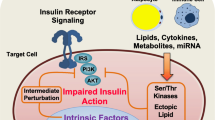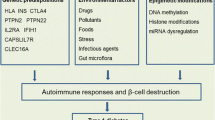Abstract
The prevaleance of morbid obesity (body mass index of 35.0 or greater) is low in Japan (0.2–0.3%), and little systematic investigation of its cause in this population has been carried out. Leptin plays a central role in regulation of body weight; mice deficient in leptin develop marked obesity. We sought mutations in the leptin gene in 53 morbidly obese Japanese (maximum body mass index 35–60) including 46 with type 2 diabetes. Direct DNA sequencing was performed following polymerase chain reaction amplification. Apart from a silent mutation at codon 25 (CAA/CAG, glutamine) detected in eight subjects, no mutations were detected. We found a significantly higher prevalence of the variant leptin 25CAG allele among the 53 obese subjects (0.085) studied than in 132 nonobese control subjects (0.011, P<0.001). In Japanese populations mutations in the protein coding sequence of the leptin gene are unlikely to be a major cause of morbid obesity. However, the leptin 25CAG allele may be linked to morbid obesity in this population. Specifically, genetic variation located near the leptin gene may be involved in pathogenesis. The leptin polymorphism 25CAG appears to be a new genetic marker for obesity susceptibility, at least in Japanese.
Similar content being viewed by others
Author information
Authors and Affiliations
Additional information
Electronic Publication
Rights and permissions
About this article
Cite this article
Ohshiro, Y., Ueda, K., Nishi, M. et al. A polymorphic marker in the leptin gene associated with Japanese morbid obesity. J Mol Med 78, 516–520 (2000). https://doi.org/10.1007/s001090000143
Received:
Accepted:
Published:
Issue Date:
DOI: https://doi.org/10.1007/s001090000143




